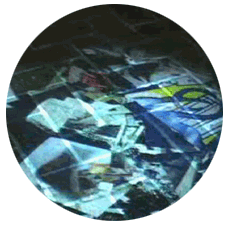Estonian Academy of Arts
Tallinn, Estonia
january 8-18 2007Week 1: Social Positioning / Tagging Tallinn
Tue January 9: Preparatory Day
18.00 - 20.30 Screenings of interesting, urban videos by Estonian architects and students
EKA hall 412
Wed January 10: Lecture day at EKA Auditorium
10.00 Opening of the Intensive Course, prof. Panu Lehtovuori, EKA Urban Studies
10.15 prof. Mauri Kaipainen, Tallinn University: Soft Ontologies
12.00 Lunch
13.30 prof. Rein Ahas, Human Geography, University of Tartu:
Mobile positioning data in urban studies. Social Positioning Method and Live Maps
15.00 Discussion
15.15 Coffee
15.45 Architect Ülar Mark, Urban Mark Architects: Mobile positioning in urban planning
---
17.30 – 18.30 Tagging Tallinn
workshop start-up, organising groups and tasks
Thu January 11: Tagging Tallinn workshop
TAGGIN' TALLINN links:
Work in groups
15.00 – 17.00 common tutoring session, Lilia del Rio, Panu Lehtovuori, Kalle Komissarov
EKA hall 412
Fri January 12: Tagging Tallinn workshop
12.00 – 14.00 Interim critique.
Mauri Kaipainen, Ülar Mark, Kalle Komissarov, Lilia del Rio, Panu Lehtovuori
EKA hall 412
Sat January 13: Tagging Tallinn workshop
Work in groups
Week 2: Space Syntax and Sims
Mon January 15: Lecture day
12.00 - 13.30 Tagging Tallinn workshop wrap-up and discussion
14.15 - 15.30 prof. Anssi Joutsiniemi, Tampere University of Technology: Modelling urban space 1. Configurations and simulations. EKA Room 412
15.30 – 15.45 Coffee break
15.45 – 17.15 Anssi Joutsiniemi. Modelling urban space 2. Using movement sequences to model metropolitan scale configurations. EKA Room 119b
17.15 – 18.30 Space Syntax workshop start-up
Alain Chiaradia, Anssi Joutsiniemi, Mauri Kaipainen, Lilia del Rio, Kalle Komissarov, Panu Lehtovuori
SpaceSyntax website
Tue January 16: Space Syntax workshop
Work in groups
Tutoring by Alain Chiaradia and Anssi Joutsiniemi
Wed January 17: Lecture day at EKA Auditorium
In the morning work in groups (Room 412)
Tutoring by Alain Chiaradia and Anssi Joutsiniemi
14.00 prof. Alain Chiaradia, London: Theory of Space Syntax, links between social and spatial configurations (double lecture)
17.00 Discussion, led by prof. Anssi Joutsiniemi
18.00 Coffee
18.30 – 19.30 Space Syntax workshop interim critique
Alain Chiaradia, Anssi Joutsiniemi, Kalle Komissarov, Panu Lehtovuori
Thu January 18: Space Syntax workshop
Work in groups. Tutoring by Alain Chiaradia
Fri January 19: Space Syntax workshop and closure
10.00 – 12.00 Space Syntax wrap-up and discussion EKA hall 412
Alain Chiaradia, Anssi Joutsiniemi, Kalle Komissarov, Panu Lehtovuori, Lilia del Rio
14.00 + Cleaning the room, burning cds
16.00 - 18.00Taggin' Tallinn Design group meeting
18.00 + Winding down evening.
























